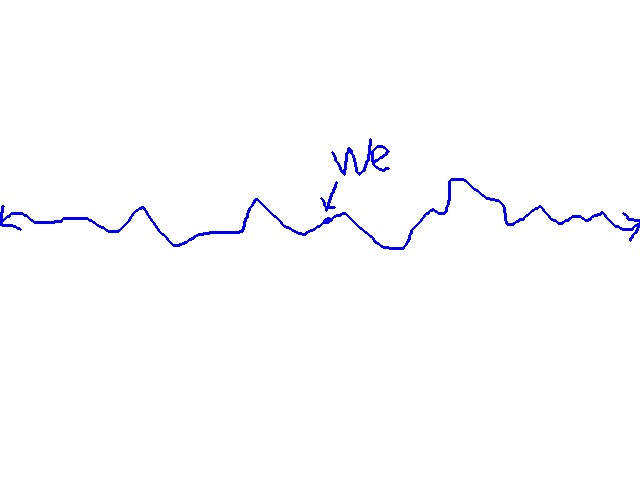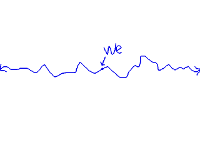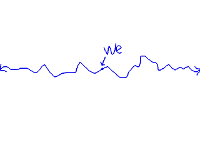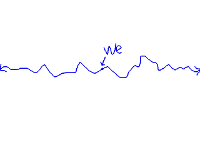No Moksha may NOT be permanent(!), but quite long. Moksha is neither achievable nor given; it just happens for All0.
Caution: My opinion on Moksha changed after I wrote answer for Does Shiva or Vishnu or Trikaladarshi Yogi know our Aagami Karma or our free will?. While thought experimenting, this notion blinked as a byproduct. For now, I am convinced but not so happy about!
Moksha means merging with the true nature of god and then not to have the further births & deaths. I agree with that, but only limited within 1 cycle of Brahma, Not beyond that. Re-defining "Moksha" from "never after" to "sometime after".
Only eternal things remain forever e.g. Nirguna Brahman. Something which comes into existence has to be non-existent again. If Moksha is received, it will be taken away too. Any volatile thing can remain forever by repeating itself in exactly same pattern.
Suppose if Brahma's cycle is of 10 billion(bn) years. Which constitutes day and night of 5 bn years each. Then the total duration of Moksha would be: 5 bn <= X bn <= 10 bn years for any receiver. In other words, after writing this answer if you and me attain Moksha, then exactly after 10 bn years, we will be again doing this same, because before 10 bn years, it was also exactly the same as now. This continues in both the directions.
This might be little outrageous, hence I would request you to go through below pre-requisites:
- The linked answer above
- Just understand the question part of If time extended infinitely, we would never arrive to the present
... (answer not required to be read)
- Optional: Youtube: The eternal block
universe; first 1 minute
 Imagine a randomly curved infinite line, whose every point is uniquely placed. Can you say that from the (so called) beginning of the line, how much time will it take to reach the point "We"? Well certainly, infinite. Which means one can never reach that point with whatever speed. In general if a line doesn't have a beginning, then whichever point you choose, traveler can never reach there.
Imagine a randomly curved infinite line, whose every point is uniquely placed. Can you say that from the (so called) beginning of the line, how much time will it take to reach the point "We"? Well certainly, infinite. Which means one can never reach that point with whatever speed. In general if a line doesn't have a beginning, then whichever point you choose, traveler can never reach there.
Keeping this in mind, imagine this line to be the "time", all points on it as "events" and "We" as the present moment. If all events in time were unique then, we would never reach at the present moment. This is called "Infinite regression".
So here we have 2 truths:
- Time is eternal: True, because infinite amount of seconds have passed & will continue to pass even if anyone is there or not
- We are existing: True, because we are reading this post! Keep MAyA & all aside for now.
If (1) is true (i.e. forever time), then as per "infinite regression", we can never reach the present moment. But we reached & are existing.
If (2) is true, then, the time cannot be forever/eternal; it must have a start point. But that's false. Even with or without MAyA, (what we call) 1 second will always tick, which makes time forever or incalculable1.
Both statements are true even though they contradict each other. Then how can they co-exist? The answer is:
"Cycles of Brahma"2
If the things repeat itself in exactly same pattern, then it becomes "frequency" and within 1 cycle, any point can be reached even with slowest travel. For example, let's consider the limited chunk you see above as 1 cycle and keep repeating them as below. Then we can be assured that "We" (the present moment) will be reached for sure. It may take 10 billion years, but the point will be touched. Because you can be IN any of the cycles. All cycles are perfectly same. Below figure can be also represented by joining the front end & the back end to make a circular travel.



This satisfies both (1) & (2) to be true. The time is existing forever because of infinite cycles and the present moment would surely be reached because a cycle constitutes finite events. Which means:
- The circumstances in which present, past or future moments are
experienced, they must repeat themselves in exact same pattern
once the cycle (of Brahma) is finished (e.g. 10 bn years); e.g. What
I did in past, I will be doing again. What I am going to do in
future, I have already done before. ("These kings have already been
slain"; Remember?)
- If someone receives Moksha after X births, then he/she will again
receive the same Moksha in same pattern after X births in next cycles,
because it has already happened in previous cycles
- Whatever Karma one does are fixed, hence its fruits & subsequent
Karmas are also predestined; If a pious man receives Moksha at 4 bn &
a sinful man receives Moksha at 1 k years, is fixed
- The only catch is, no one knows what is going to
happen; But Moksha
is destined to happen for all beings0
In very beginning of Gita, it's revealed that there was never a time when the warriors didn't exist and never will be the time when they cease to exist3. That implies that all the warriors on Kurukshetra, were present before as well and will be present afterwards too. Does that mean Arjuna will never get Moksha? What about Drona, who got Moksha during the battle?
All will surely get Moksha at some point of time. But they will again be back in the exact same pattern. Arjuna has already got confused before and will be confused again. Krishna should again repeat the exact similar message and convince him to fight.
Means, upon Brahma's day, all the living entities come into being and upon night, all merge into it again (Moksha). And, this cycle repeats again and again4.
Arguments
"Yes, the cycle will repeat again. But every time new MAyA (material world) will be created."
One Brahman should ideally generate one kind of MAyA. Even, if new MAyA is created every time then it makes all the events unique on the timeline. That results in "infinite regression", hence we can't be in present moment. But we are, because even if Brahman generates different MAyA, that has to be a finite number and should repeat again in a cycle infinitely.
"Fine. Material world can be same, but the souls/Jivas are different. Because Jivas are infinite, it will never exhaust. i.e. a body is taken by soul X last time, soul Y currently and soul Z next time."
That also doesn't make Moksha infinite.
- By decimating the common body among ..., X, Y, Z, ..., the souls
become unique. Which again makes a different combination, hence a
unique event. Which means all the previous events become unique, resulting in "infinite regression". So again we can never reach at
soul Y (current). But we are!
- Let's assume, different souls X, Y, Z taking same body. With support
of (1), that will also form a cycle. X, Y, Z will also repeat. May
be instead of Brahma's 1 day, it will be Brahma's 1k days. i.e. 10 bn
years will be 10 tn years. Hence the Moksha will be prolonged from 5
bn year to many trillion years! But certainly not infinite.
"What about all the preachings Krishna gave in Gita, which appeared
like TODO kind of advises."
The spiritual state of Krishna was altering between, a human, a friend, a teacher, god, and so on. Hence, whatever he talked with Arjuna should be taken in that context. While talking about Moksha5, he might have kept the scope limited to Brahma's day (or 100 years or something else). Explaining Arjuna about billion year theory in an era where people hardly go beyond thousands would have been not only an overkill, it would have confused Arjuna even more.
If Krishna really meant permanent Moksha with absolutely no repeatition, then probably above logical theory is missing something terribly. Hope someone will point it out.
"Even if I agree that, all my Karma are fixed and I will anyway get Moksha, only when I am destined to. Then I can just sit hands down and do absolutely nothing. What about that?"
Yes, one may opt for Karma SanyAs (not doing Karma itself), but it's not better than Karma Yoga (renouncing fruits of Karma)6.
But actually it's a moot discussion, because according to above theory, you are anyway going to do whatever is fixed. You may forget about this theory and get indulged in life as of nothing happened, or you may take it too seriously and do something else.
"Suppose that this theory is true. But what if the very first cycle takes too long to get finished?"
- There can't be a "first" (or "Last") in infinite.
- If it's not repeating, it's not a cycle. Again possibility of regression arises.
But if we discount above 2, then Yes, this can be a solid argument where Moksha becomes eternal indeed. Because state of Moksha will have to end only with the end of the first cycle, which is taking too long.
Is there any way by which, we can have the above assumption and its 2 counter contradictions co-exist? Well, can't say for sure.
However if all the events are fixed, then they become finite and due to which cycle "can happen", even though 1st one takes too long. From the perspective of Nirguna Brahman, it MAY not even matter if the cycle happens or not, because it's already in permanent state of Moksha!
The outcome of this theory is not mainly about "Brahma's Cycles", but it's about how we are at present moment, because all are predetermined events.
"Whatever we do now, is done already and would be done again; exactly in same pattern."
References:
0 BG 9.7 — O son of Kuntī, at the end of the millennium all material manifestations enter into My nature, and at the beginning of another millennium, by My potency, I create them again.
1 BG 10.30 — Among the Daitya demons I am the devoted Prahlāda,
among subduers I am time, among beasts I am the lion, and among
birds I am Garuḍa.
2 BG 8.17 — By human calculation, a thousand ages taken together form the duration of Brahmā’s one day. And such also is the duration of his night.
3 BG 2.12 — Never was there a time when I did not exist, nor you, nor all these kings; nor in the future shall any of us cease to be.
4 BG 8.18 — At the beginning of Brahmā’s day, all living entities become manifest from the unmanifest state, and thereafter, when the night falls, they are merged into the unmanifest again.
BG 8.19 — Again and again, when Brahmā’s day arrives, all living entities come into being, and with the arrival of Brahmā’s night they are helplessly annihilated.
5 BG 8.21 — That which is describe as unmanifest and infallible, that which is known as the supreme destination, that place from which, having attained it, one never returns – that is My supreme abode.
6 BG 5.2 — The Personality of Godhead replied: The renunciation of work (Karma SanyAs) and renunciation of fruits (Karma Yoga) are both good for liberation. But, of the two, renunciation of fruits is better than renunciation of work .



